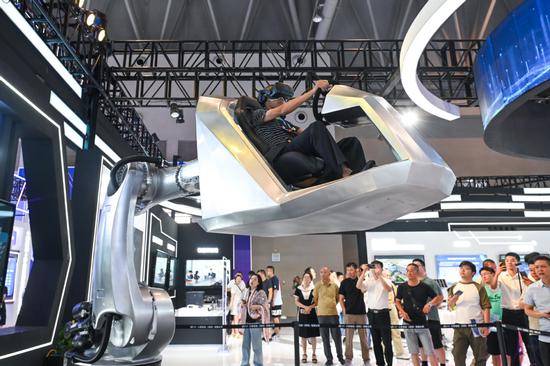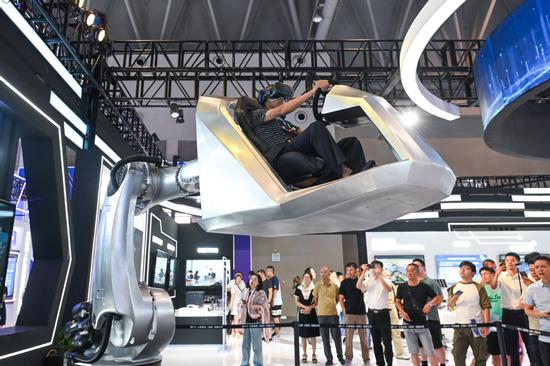U.S. Treasury Secretary Janet Yellen has wrapped up a six-day trip to China, her second since July 2023.
Yellen’s visit, against the backdrop of intensifying China-U.S. economic, technological and trade competition, is considered a positive step towards stabilizing ties between the world’s two largest economies.
However, Chinese experts say the efforts may be impeded by unfavorable policies towards China by the White House amid U.S. presidential elections.
‘Postive role’ in stabilizing China-U.S. ties
In China, Yellen visited southern coastal metropolis Guangzhou and the capital city Beijing. She held talks with high-ranking Chinese officials including Premier Li Qiang, Vice Premier He Lifeng and Minister of Finance Lan Fo’an.
Focusing on the implementation of the important consensus between the two countries’ heads of state, the two sides had candid, pragmatic and constructive discussions on the macroeconomic situation of the two countries and the world.
“Yellen’s visit to China has played a threefold positive role in stabilizing China-U.S. relations,” Yan Zhanyu, a scholar on international relations at China’s University of International Business and Economics, told CGTN.
“First, Yellen’s visit consolidated the strategic communication mechanism initiated by both countries during her last year’s visit to China in September, facilitating bilateral discussions on economic and financing policies,” Yan said.
Two significant new initiatives were launched during Yellen’s latest China trip: one is the Exchange on Balanced Growth in the Domestic and Global Economies; the other is the Joint Treasury-People’s Bank of China Cooperation and Exchange on Anti-Money Laundering.
“The launch of two new initiatives will facilitate the progress of working together on the common good and resolving differences in a pragmatic manner,” Gao Zhijun, an assistant research fellow at the Chinese Academy of Social Sciences, said in a commentary to CGTN.
The technical nature of such exchanges will also mitigate political and ideological influences, ensuring both teams concentrate on the practical issues, Gao added.
What’s more, Yellen’s visit to China will also inject new vitality into the future development of China-U.S. relations as the trip has demonstrated positive signals of people-to-people exchanges, according to Yan.
In Guangzhou and Beijing, Yellen’s order at local restaurants went viral on Chinese social media platforms.
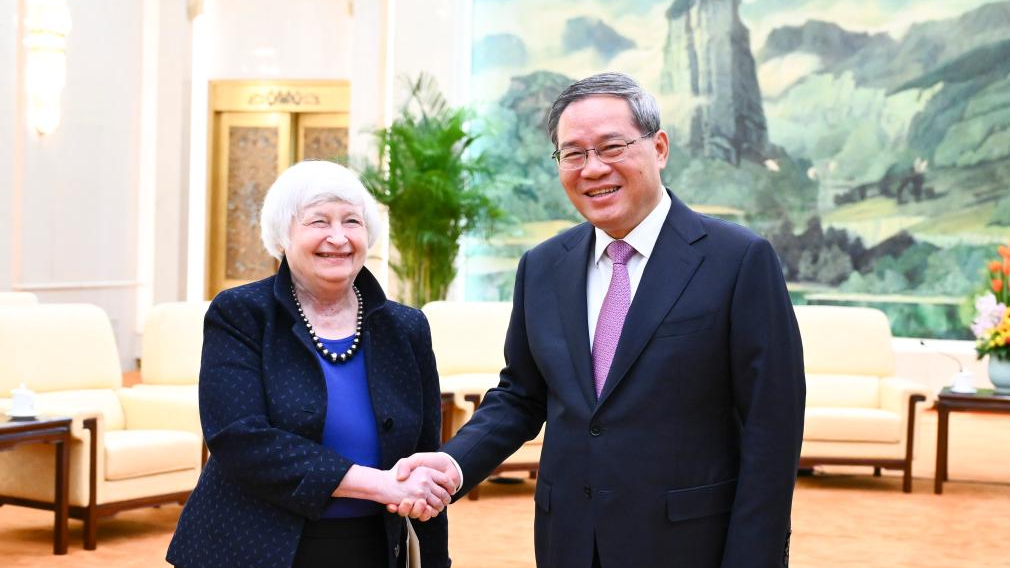 Chinese Premier Li Qiang meets with U.S. Treasury Secretary Janet Yellen at the Great Hall of the People in Beijing, capital of China, April 7, 2024. /Xinhua
Chinese Premier Li Qiang meets with U.S. Treasury Secretary Janet Yellen at the Great Hall of the People in Beijing, capital of China, April 7, 2024. /Xinhua
Chinese Premier Li Qiang meets with U.S. Treasury Secretary Janet Yellen at the Great Hall of the People in Beijing, capital of China, April 7, 2024. /Xinhua
Posibility of holding back ties
During this trip, Yellen had “extensive, frank, and productive” meetings with key Chinese officials and voiced firm opposition to China-U.S. decoupling on several ocassions, warning a bid to decouple from China would be “disastrous.”
However, Yellen also raised concerns over certain aspects of the Chinese economy, particularly overcapacity in emerging industries such as electric vehicles, lithium-ion batteries, and solar energy.
“China is now simply too large for the rest of the world to absorb this enormous capacity,” she stated at a press conference in Beijing on Monday, pointing to potential global spillover effects.
Compared to her last visit, Yellen paid much more attention to this issue, according to Gao.
“Yellen’s visit to China is a demonstration of ‘good cop, bad cop strategy’ used by the U.S. in its hard-line strategy against China,” Yan said. It is an effort by the U.S. to maintains normal channels of high-level communication with China to stabilize economic ties, while conveying Biden’s tough policies against China, he noted.
“Amid the year of a U.S. presidential election, it is possible that the White House will deploy new sanctions to pressure the Chinese side to garner political support. This will hold back the progress of stabilizing the bilateral relationship,” said Gao.
(Cover: U.S. Treasury Secretary Janet Yellen speaks during a press conference in Beijing, China, April 8, 2024. /CFP)
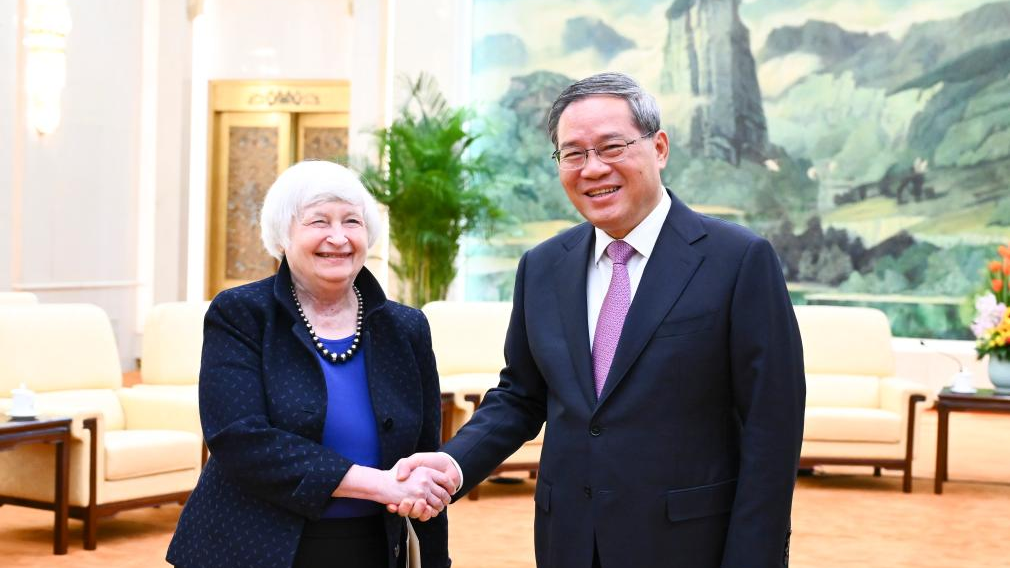
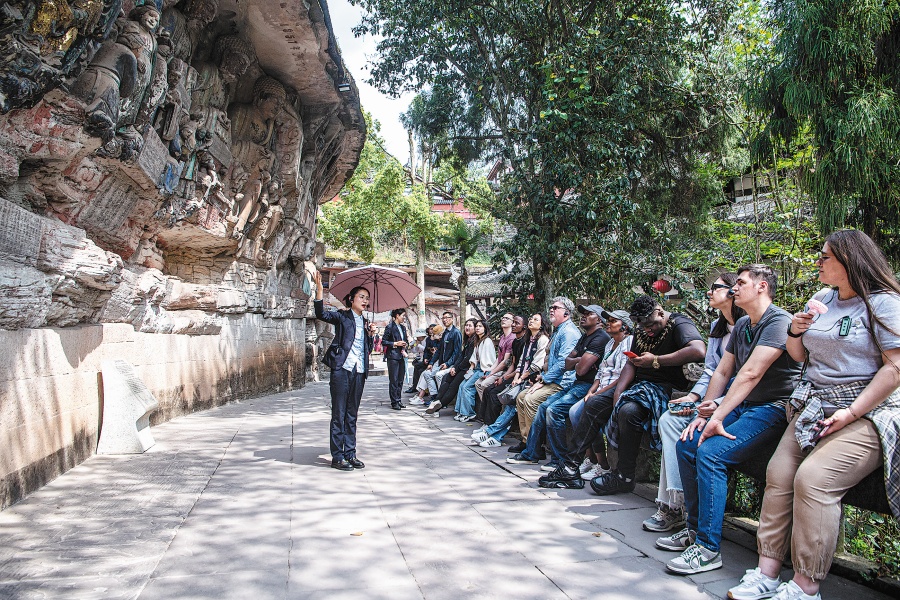
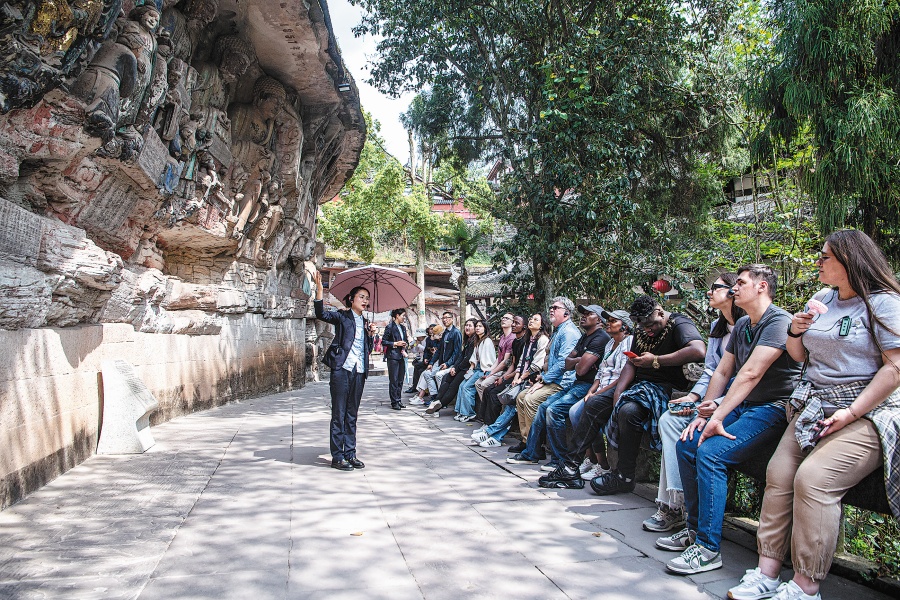 A tour guide introduces the stories of Dazu Rock Carvings to foreign visitors in Chongqing on March 27. TANG YI/XINHUA
A tour guide introduces the stories of Dazu Rock Carvings to foreign visitors in Chongqing on March 27. TANG YI/XINHUA 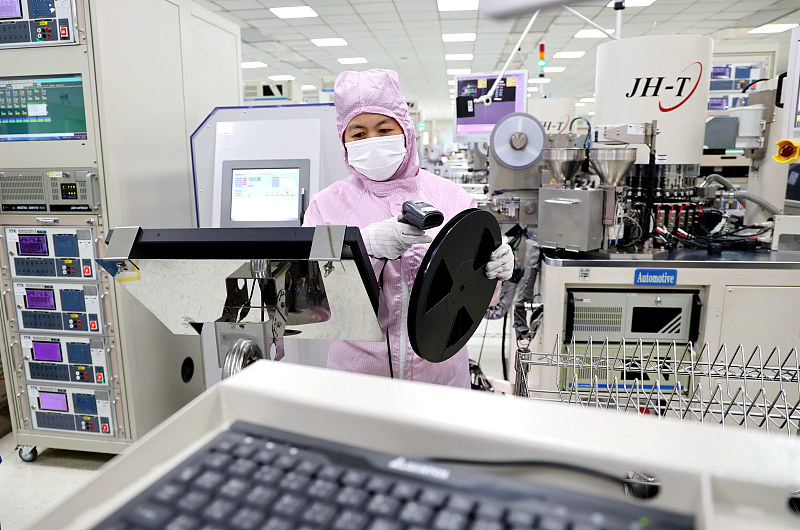
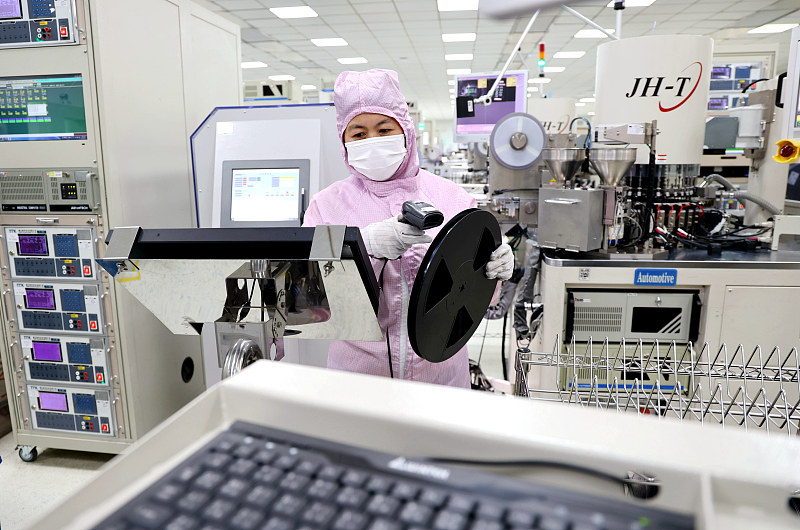 A staff member works on the production line of a semiconductor production company in Yangxin county, Binzhou city, East China’s Shandong province on April 1, 2024. [Photo/VCG]
A staff member works on the production line of a semiconductor production company in Yangxin county, Binzhou city, East China’s Shandong province on April 1, 2024. [Photo/VCG] 

